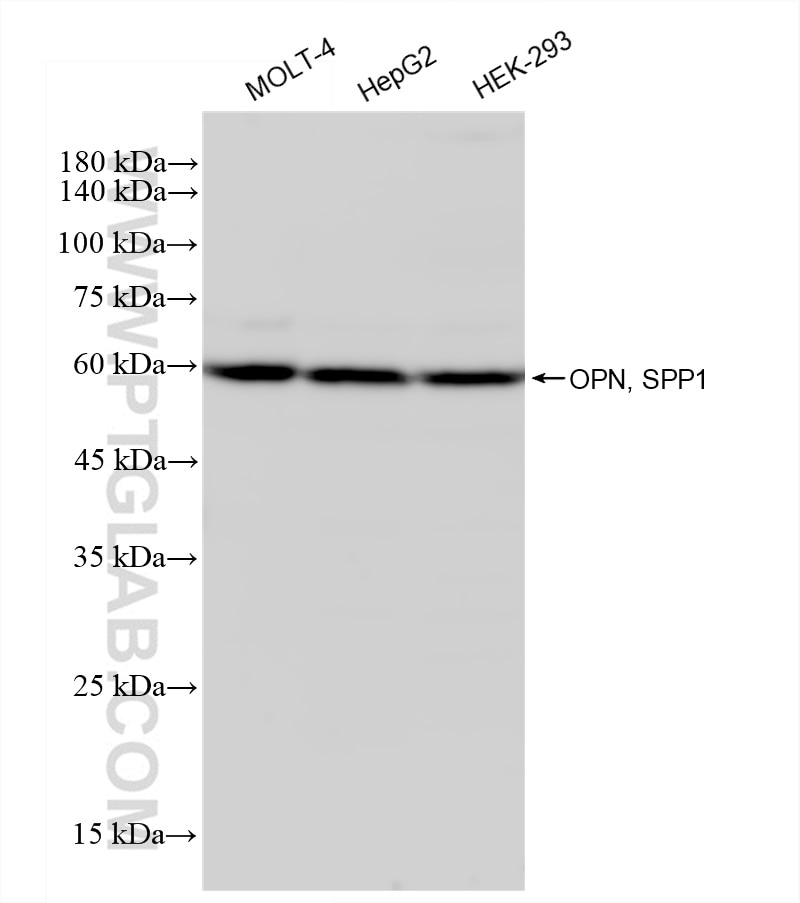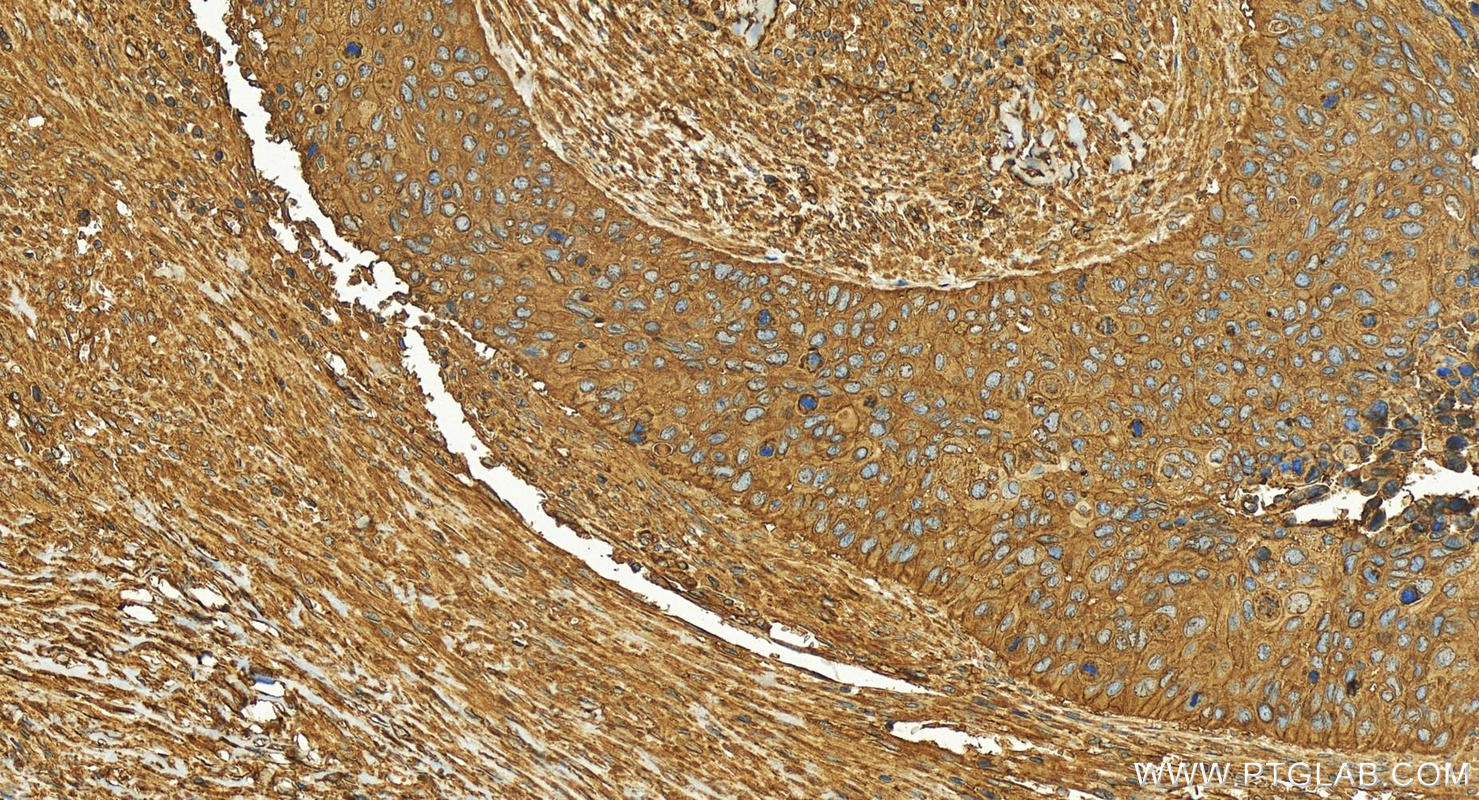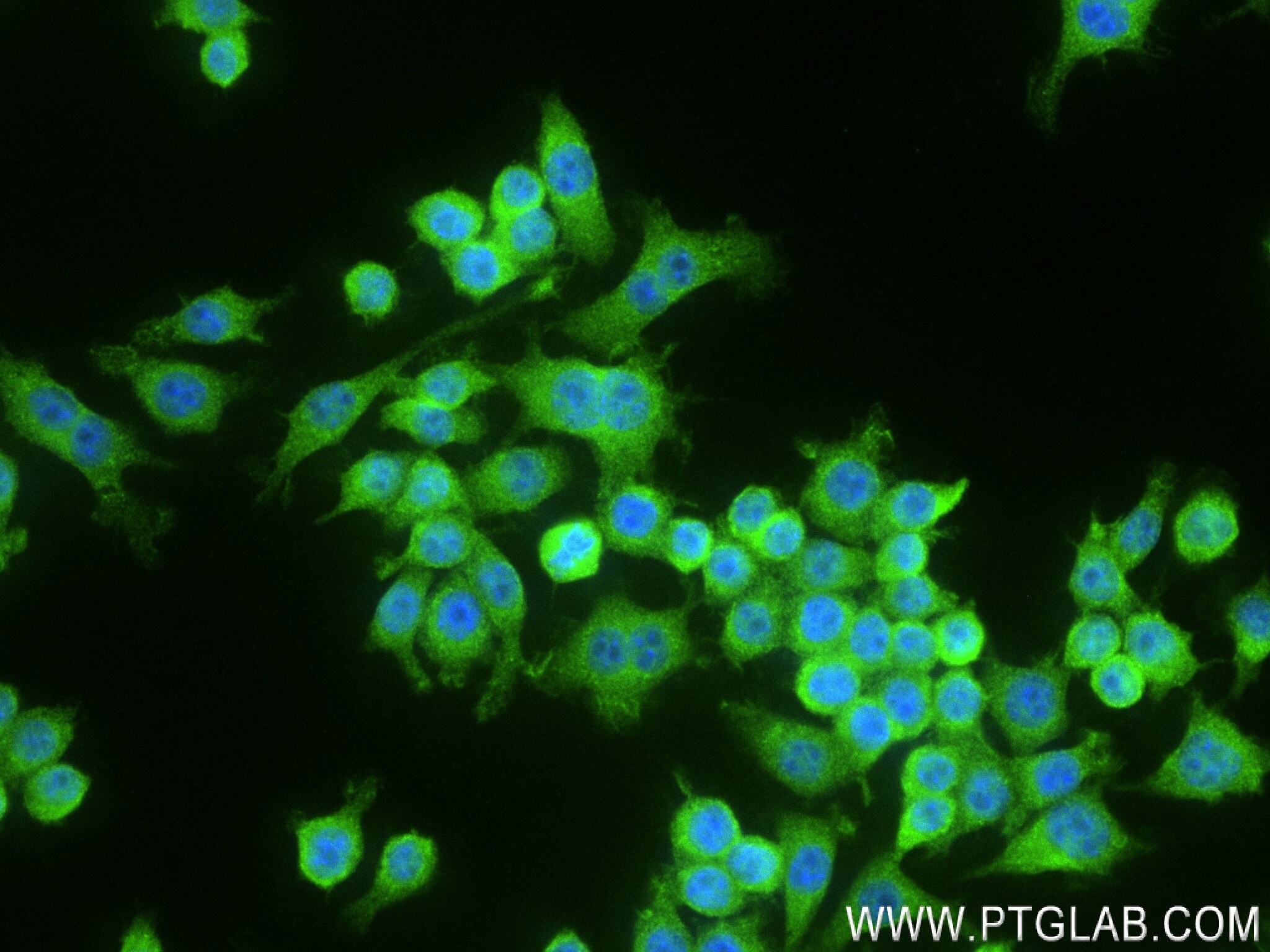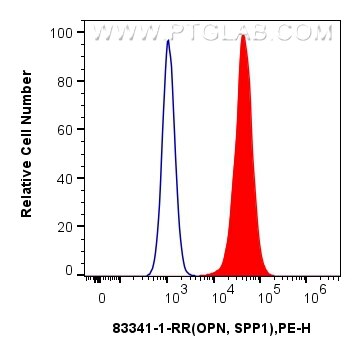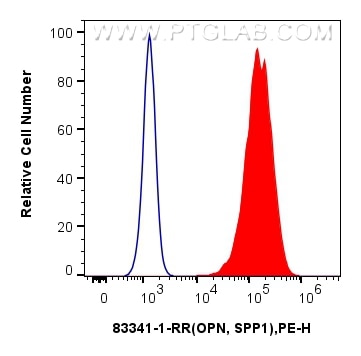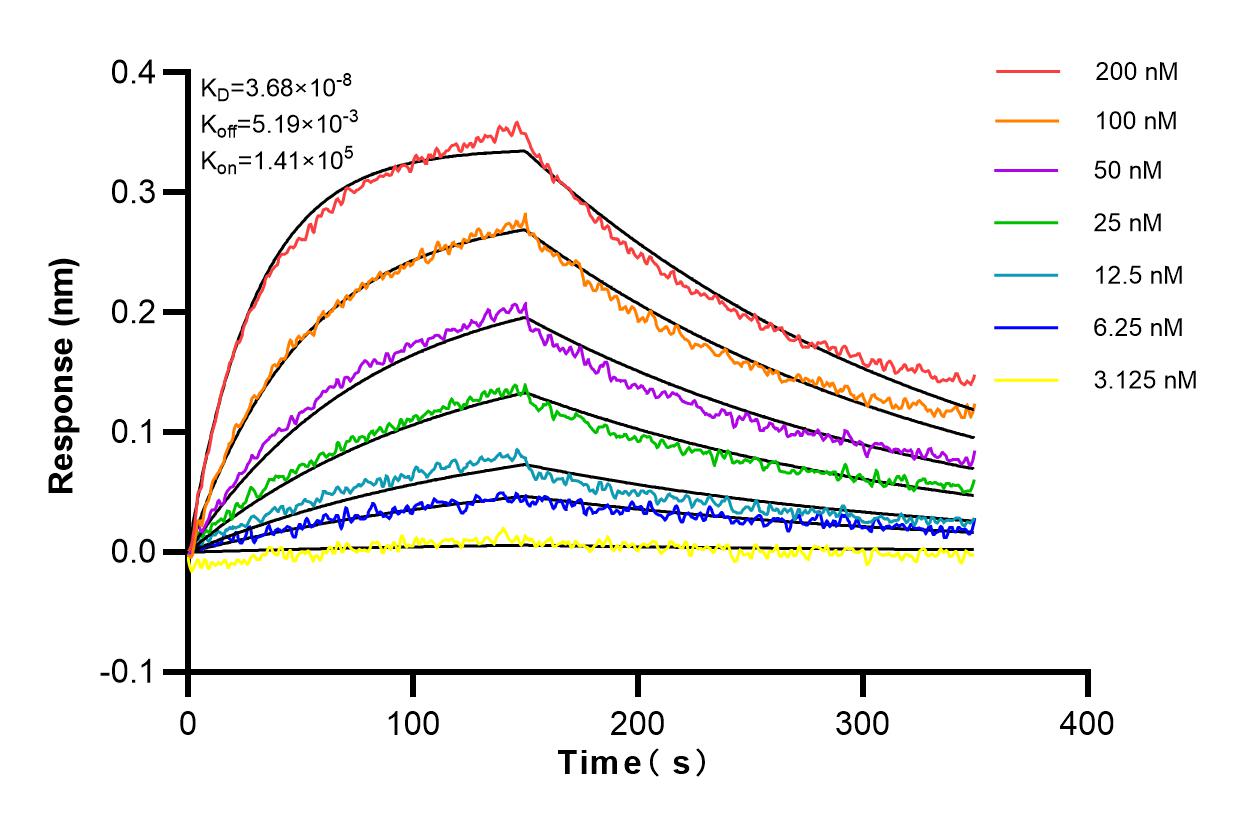Tested Applications
| Positive WB detected in | MOLT-4 cells, HepG2 cells, HEK-293 cells |
| Positive IHC detected in | human cervical squamous cancer tissue Note: suggested antigen retrieval with TE buffer pH 9.0; (*) Alternatively, antigen retrieval may be performed with citrate buffer pH 6.0 |
| Positive IF/ICC detected in | RAW 264.7 cells |
| Positive FC (Intra) detected in | U-937 cells, A549 cells |
Recommended dilution
| Application | Dilution |
|---|---|
| Western Blot (WB) | WB : 1:1000-1:6000 |
| Immunohistochemistry (IHC) | IHC : 1:200-1:800 |
| Immunofluorescence (IF)/ICC | IF/ICC : 1:125-1:500 |
| Flow Cytometry (FC) (INTRA) | FC (INTRA) : 0.25 ug per 10^6 cells in a 100 µl suspension |
| It is recommended that this reagent should be titrated in each testing system to obtain optimal results. | |
| Sample-dependent, Check data in validation data gallery. | |
Published Applications
| WB | See 1 publications below |
| IF | See 2 publications below |
Product Information
83341-1-RR targets Osteopontin in WB, IHC, IF/ICC, FC (Intra), ELISA applications and shows reactivity with human, mouse samples.
| Tested Reactivity | human, mouse |
| Cited Reactivity | human, mouse |
| Host / Isotype | Rabbit / IgG |
| Class | Recombinant |
| Type | Antibody |
| Immunogen | Recombinant protein Predict reactive species |
| Full Name | secreted phosphoprotein 1 |
| Calculated Molecular Weight | 314 aa, 35 kDa |
| Observed Molecular Weight | 60-66 kDa |
| GenBank Accession Number | BC007016 |
| Gene Symbol | Osteopontin |
| Gene ID (NCBI) | 6696 |
| RRID | AB_3671001 |
| Conjugate | Unconjugated |
| Form | Liquid |
| Purification Method | Protein A purification |
| UNIPROT ID | P10451-5 |
| Storage Buffer | PBS with 0.02% sodium azide and 50% glycerol, pH 7.3. |
| Storage Conditions | Store at -20°C. Stable for one year after shipment. Aliquoting is unnecessary for -20oC storage. 20ul sizes contain 0.1% BSA. |
Background Information
Osteopontin (OPN), also known as SPP1, is a secreted glycophosphoprotein that belongs to the small integrin-binding ligand N-linked glycoprotein (SIBLING) family. Originally isolated from bone, OPN has been found in kidneys, vascular tissues, biological fluids, and various tumor tissues (PMID: 15138464; 16406521). OPN can interact with CD44 and integrins and regulate diverse biological processes. It has a multifaceted role in bone development and remodeling, and is also involved in the inflammatory and immune response, oncogenesis and cancer progression. The very acidic nature of OPN, as well as the presence of variable posttranslational modifications, has led to anomalous migration in SDS-polyacrylamide gels and therefore to reports of different molecular weights for OPN (PMID: 8293561). Depending on the cell and tissue source and/or the SDS-PAGE system, OPN migrates with a molecular weight of 44-80 kDa, as well as at some smaller bands corresponding to peptide fragments (PMID: 8195113; 17890765).
Protocols
| Product Specific Protocols | |
|---|---|
| WB protocol for Osteopontin antibody 83341-1-RR | Download protocol |
| IHC protocol for Osteopontin antibody 83341-1-RR | Download protocol |
| IF protocol for Osteopontin antibody 83341-1-RR | Download protocol |
| Standard Protocols | |
|---|---|
| Click here to view our Standard Protocols |
Publications
| Species | Application | Title |
|---|---|---|
J Gastroenterol Single-cell RNA sequencing and functional analysis reveal the role of altered glycosylation levels of hepatic macrophages in liver cirrhosis | ||
Tissue Cell GIT2 negatively regulates the NF-κB pathway directly or indirectly by regulating TRAF3 expression to promote osteogenic differentiation of BMSCs |
